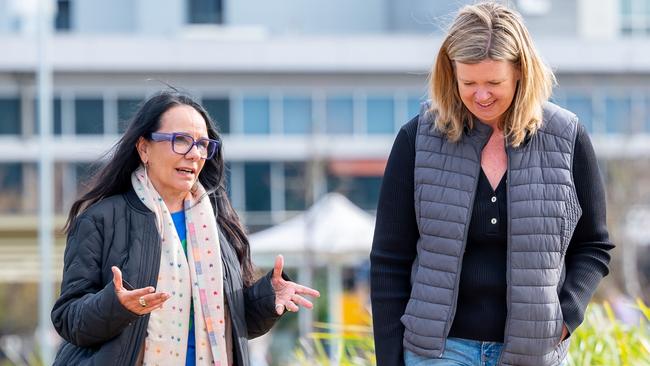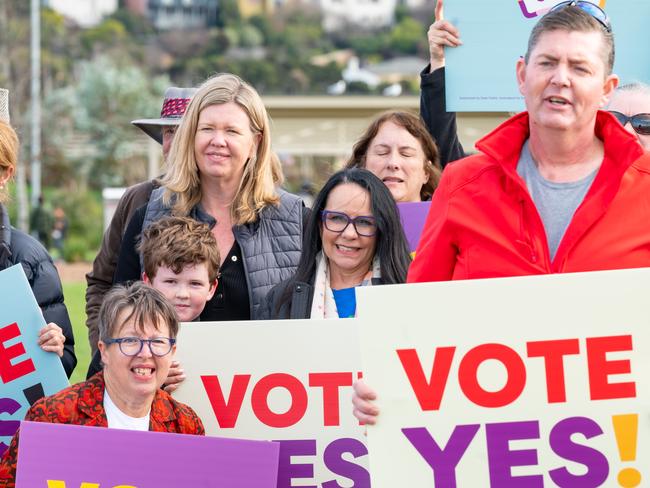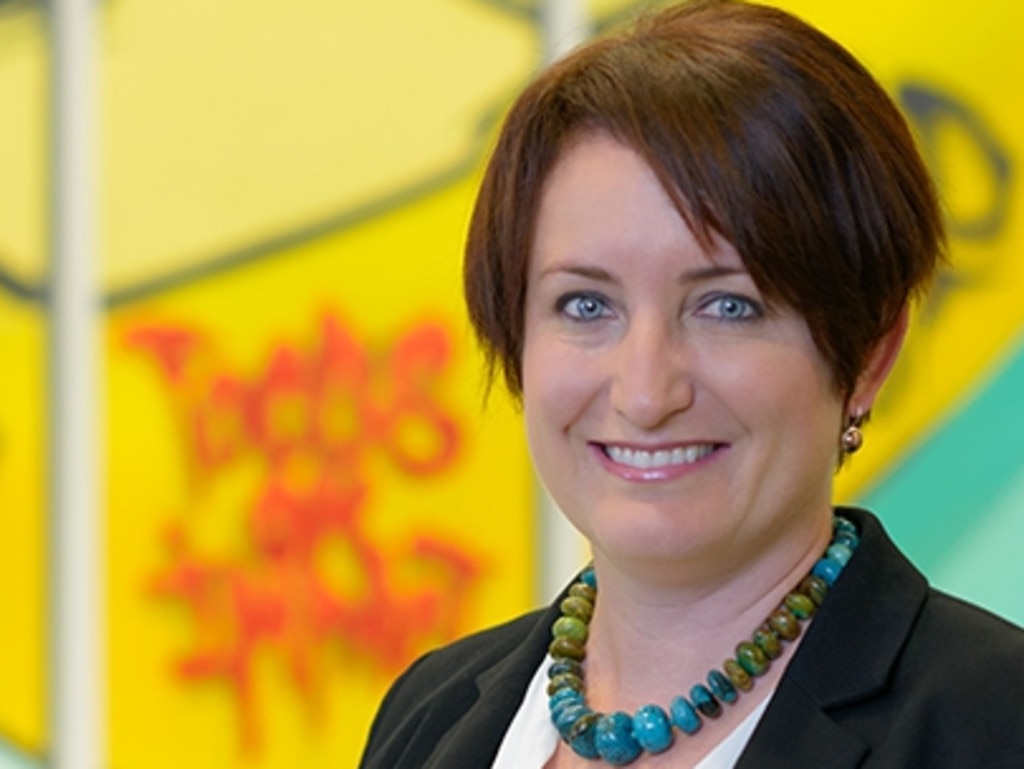Burney turns to Liberals to shore up referendum Yes vote
Indigenous Australians Minister Linda Burney has turned to her political opposites as she embarks on a push for the voice in Tasmania and WA.

Indigenous Australians Minister Linda Burney has turned to her political opposites for help to try to shore up the Yes vote as she embarks on a campaign push for the voice in Tasmania and Western Australia.
Bass Liberal MP Bridget Archer joined Ms Burney at a park in Launceston for a barbecue with voice volunteers on Sunday.
And on Monday night, former Liberal premier Peter Gutwein, who has previously lashed Peter Dutton for his opposition to the voice, is due to appear alongside Ms Burney, Ms Archer and Indigenous leader Nick Cameron for a discussion on the voice and the referendum to enshrine it in the constitution.
Ms Burney will have spent two days in Tasmania by the time she jets out of Launceston for a week of advocacy on WA’s south coast, in the iron ore rich Pilbara region and in the far north Kimberley, where Indigenous leaders plan to discuss with her the serious problem of youth crime in Kununurra.

A Newspoll of 2303 voters conducted between June 16 and June 24 showed the “Yes” vote falling three points to a new low of just 43 per cent. It found Queensland, Western Australia, South Australia and Tasmania were poised to vote “No” to amending the constitution in order to guarantee the existence of a voice. This meant the referendum was tracking for failure. Success requires a majority of electors to vote yes in at least four of the six states.
Since the referendum bill was passed in June, a new pace of campaigning has turned politicians on both sides into activists for and against an Indigenous voice.
“Tasmania is going to play a pivotal role in the voice referendum,” Ms Burney told The Australian.
“Talking with locals today in Launceston, there was an encouraging level support.
“I would estimate that about one in five people are still undecided, but once people understand the purpose of the Voice and how it can make a practical difference, they lean towards ‘Yes’.”
Ms Archer, who holds the key seat of Bass for the Liberals with a margin of 0.8 per cent, told The Australian there was a good turnout at the Yes barbecue in Launceston on Sunday, which she described as “ a really positive and enthusiastic event”.

Ms Archer said community members enjoyed the opportunity to hear from local campaign representatives and pick up campaign materials before heading out to do some doorknocking.
“I was pleased to join Minister Burney to continue to demonstrate our shared commitment, across political lines to this unifying opportunity for Australia,” Ms Archer said.
“For me it is an issue that is not about partisan politics - it has had a history of bipartisanship and it is unfortunate in my view that has eroded but ultimately it is for the community to decide, I encourage Australians to consider the facts and make a decision on that, not on their party politics.”
Tasmania’s high profile Indigenous leader Michael Mansell is against the Indigenous voice referendum because he prioritises a treaty. On Sunday he urged Ms Burney to show goodwill to Indigenous Australians who see a treaty as more urgent than a voice by releasing $5m of Federal funds set aside for a treaty process. Mr Mansell said this could be used to hold a national treaty convention immediately.
“She is the minister for Indigenous affairs not the minister for the Yes vote,” he said.

In WA, both state Nationals leader Shane Love and state Liberal leader Libby Mettam support the Indigenous voice. However, Ms Mettam confirmed on Sunday she would not campaign with Ms Burney.
“I had said from the outset I wouldn’t campaign on voice - I don’t have the luxury of campaigning on Federal issues,” she told The Australian.
Ms Burney will meet Noongar leaders and voice volunteers on Tuesday in the south coast town of Albany, the first white settlement in WA. The Noongar people struck what constitutional experts regard as Australia’s first treaty when in 2020 they struck the $1.3 billion South West Native Title Settlement with the WA government. That deal ended a marathon legal battle over the entire lower third of the state, including Perth.
It means the approximately 30,000 Noongar people have control of housing and economic development projects through six corporations funded by the dividends of a future fund. They also have joint management of national parks on their traditional lands.
Noongar elder Lester Coyne said mental health and suicide were important issues that his people hoped the voice would advise government about. For example, there was consternation that expensive suicide prevention programs were not reaching the communities that needed help. Mr Coyne, 76, said he would also talk to Ms Burney about Indigenous employment.
“When Ken Wyatt was the minister (for Indigenous Australians) we asked him to bring back the old CDEP (work for the dole program) because it actually worked ... but his government didn’t want that,” he said.
Ms Burney said on Sunday that the reimagined work for the dole scheme, known as CDP, was failing in about 1000 communities across Australia.
“There are some Noongar people who don’t agree with the voice,” Mr Coyne told The Australian.
“I usually ask them to think about whether they are happy with all the terrible problems we have with incarceration and mental health - how are we going to address that when we cannot get heard in Canberra.”







To join the conversation, please log in. Don't have an account? Register
Join the conversation, you are commenting as Logout